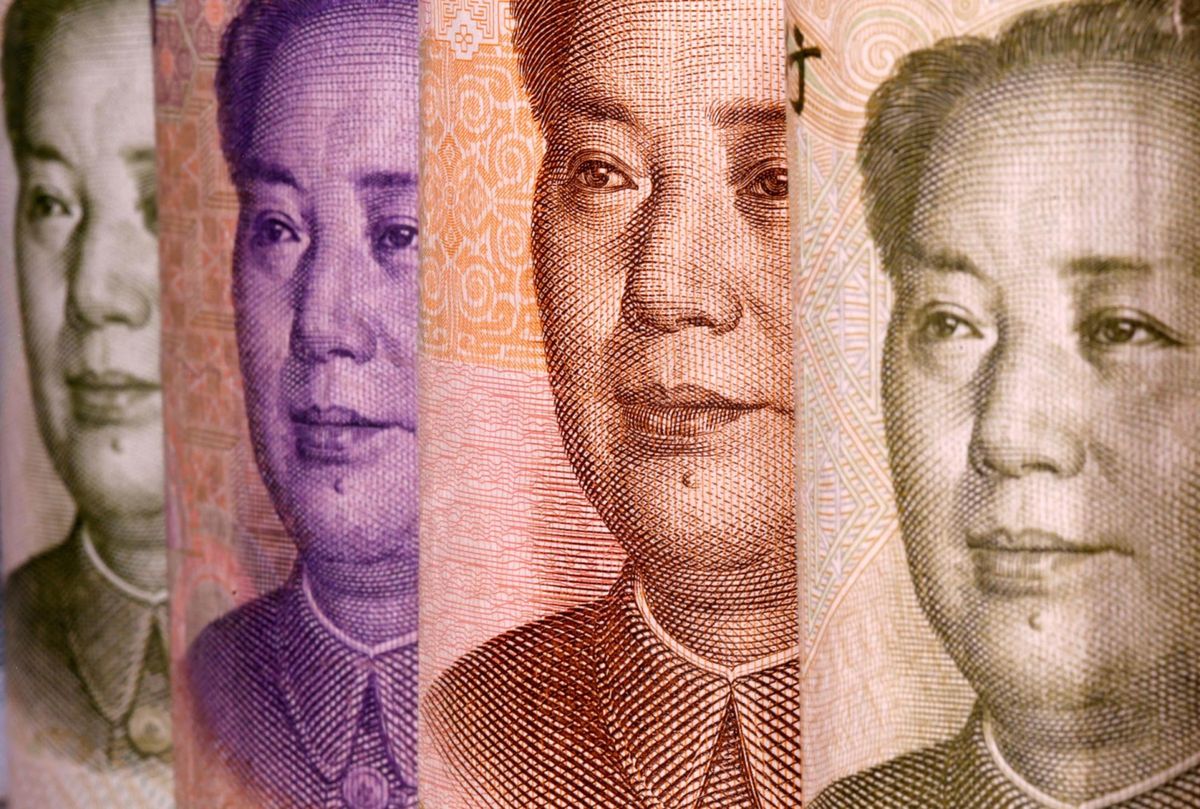China has just introduced the digital yuan. What does this mean for the US?

A few minutes every morning is all you need.
Stay up to date on the world's Headlines and Human Stories. It's fun, it's factual, it's fluff-free.
When Bitcoin was introduced in January of 2009, it was met with intense skepticism, partly because cryptocurrency was such a new concept. For years people would debate whether Bitcoin would survive the long haul, or if it would crash altogether, but as other cryptocurrencies were introduced into the marketplace, the question crystallized – was it possible for a digital currency to succeed?
China certainly thinks so.
The Chinese government has begun minting its currency, the yuan, digitally. Unlike in transactions that are processed digitally through a credit card or a smartphone, the digital yuan will be legal tender that exists only digitally, much like cryptocurrencies like Bitcoin.
China is the world’s first major economy to have a digital form of its currency.
“In order to protect our currency sovereignty and legal currency status, we have to plan ahead,” said the project director at the People’s Bank of China, Mu Changchun.
The new digital currency will resemble its digital predecessors in many ways, but the main difference is that it’s centralized. It will also share the benefit of cryptocurrencies in its ease of use over long distances, which will eventually allow for quick and simple international transactions, or speedy allocation of government funds.
However, unlike currencies such as Bitcoin, the digital yuan will not provide users with any anonymity when spending it. The currency will be closely monitored by China’s central bank, which will be the entity issuing the money. The close monitoring will likely see further growth on the already heavy surveillance seen by the Chinese state.
The monitoring will also allow for the government to more easily crack down on criminal activity and counterfeit currency issues. It will also mean that, because of the facial-recognition infrastructure that allows for fines to be placed on people for things like jaywalking, these fines could be collected instantly when an infraction occurs.
But the close monitoring of the currency has a major upside in that it will massively reduce the volatility that has plagued other decentralized currencies. In trials, Beijing has experimented with expiration dates for its currency – both in order to encourage spending when the economy needs boosting, as well to place limits on the amount of digital yuan a person can carry to help tighten the economy back up when necessary.
Beijing will also maintain control over the currency to ensure there isn’t ever a value difference between physical yuan and its digital counterpart. In theory, the two forms of the same currency should be able to be used interchangeably.
The digital yuan, being centralized in the People’s Bank of China, will also provide a layer of defense against American sanctions. As it stands, currency exchanges mostly run on the American SWIFT transfer network used by commercial banks, which is one such network that is covered in sanctions placed by the United States.
In some instances, nationals who have been subject to American sanctions – such as Hong Kong Chief Executive Carrie Lam – have been unable to use any commercial banks and, as a result, have had to resort to simply using and stockpiling cash for all of their transactions. More than 250 Chinese citizens and officials have been hit by similar sanctions over accusations of atrocities committed against ethnic minorities in Xinjiang and suppressing democratic freedoms in Hong Kong.
But with the digital yuan, individuals who are impacted by American sanctions will be able to bypass the SWIFT network, effectively weakening the power of American sanctions. When the digital form of the currency eventually enters the global market, this will also allow for sanctioned individuals from outside of China to avoid certain aspects of sanctions as well.
“The Chinese have created a problem for us by taking away our sanctions leverage,” said Nicholas Burnes, an American diplomat with potential prospects in Beijing.
China’s move to put its own digital currency into play puts the spotlight on the need for other major economic powers to develop their own digital currencies and modernize their financial infrastructures.
For the US, developing a digital form of the dollar would may give it the global economic foothold it would need to regain influence with its sanctions.
When asked how digital currencies like the new digital yuan could affect the dollar, Federal Reserve Chairman Jerome Powell and Treasury Secretary Janet Yellen said that they are looking into whether or not a digital dollar would eventually make sense.
Though the yuan doesn’t appear to be a direct threat to the dollar in regular usage, some economists and analysts say that it could gain some ground around the edges of the international financial systems at play.
Chairman Powell has also stressed that being quick isn’t necessarily better.
At a recent Senate appearance, Powell said that researching the question of whether the dollar could be digitized to help the US protect its importance on the global scale is a “very high-priority project.”
“We don’t need to be the first,” he emphasized. “We need to get it right.”
Have a tip or story? Get in touch with our reporters at tips@themilsource.com




Comments ()